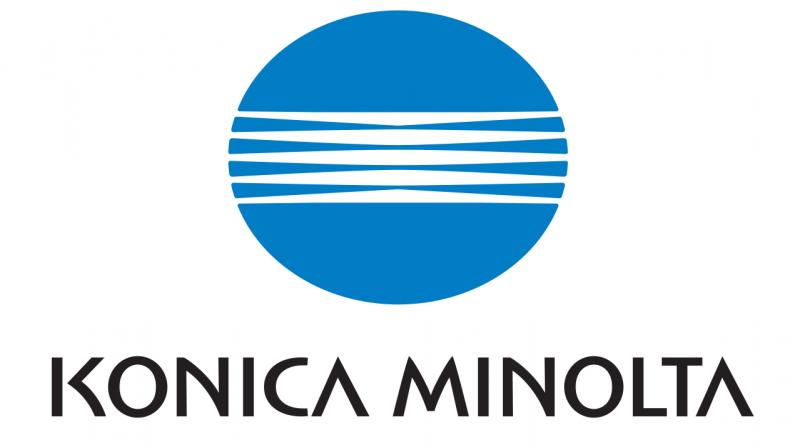Reimagining Print: Five key trends in the digital printing industry
Digital fabric printing is revolutionizing the fashion industry by allowing designers to create unique, customized products.

Technology has greatly influenced the way the world operates. Digital disruptions have become ubiquitous, and the impact they have had on every industry on a global level is remarkable. It is impossible for us to imagine a world not powered by digital technology today.
The print and printing industry has not been untouched by the velocity and scale of this digitally-driven change. On the contrary, key domain leaders are leveraging newer technologies to power their processes and solutions, driving a shift in momentum towards digital printing.
This, in turn, has brought about a radical, transformative change in the way print and printing has traditionally been approached. For instance, digital fabric printing is revolutionizing the fashion industry by allowing designers to create unique, customized products and collections with faster production timelines.
On the back of these developments, the global market for digital printing is projected to grow at a CAGR of 4.48% to reach USD 28.85 billion by 2023; digital fabric printing alone is expected to grow at a CAGR of 25%. With widespread tech-led innovations emerging on a regular basis, here are five key trends driving the digital printing industry:
Booming demand for personalization
Technological advancements such as AI, machine learning, IoT, data analytics, and automation have personalized communications to a great extent. The convergence of these technologies in digital printing is now making it possible to seamlessly and efficiently introduce a high level of print personalization, even for large-volume orders.
Brands are already leveraging such customized service delivery to enhance customer experience, loyalty, and retention. Leading Original Equipment Manufacturers (OEMs) in the printing industry are boosting their sales by catering to this growing demand. We can expect print personalization to become a major trend further accelerating the robust growth of the digital printing industry.
A shift towards sustainable operations
With environmental sustainability, a major concern across industries, the print and printing sector has been trying to shift towards more ecologically-friendly operations since long. Digital printing is allowing the segment to move beyond just the use of renewable resources, improving print accuracy to further reduce emissions and wastage.
Moreover, as more and more organizations strive to meet their sustainability goals and reduce their carbon footprint, there is also a growing demand for UV-cured inks. Such inks are environment-friendly and do not require any pre-processing of the substrate. Not only do they possess characteristics such as quick drying and anti-clog, but are also suitable for printing on different surfaces such as textiles, plastics, etc. and deliver superlative print quality.
The need to enhance sustainable operations and processes is driving growth in the demand for such UV-curing ink systems. The segment is expected to be one of the fastest growing within the digital printing industry, holding the largest share of the ink market between 2017 and 2023.
User convenience and optimized operations through cloud connectivity
In today’s highly flexible and interconnected business environments, business processes and functions are increasingly getting digitized. Most of the operations now take place on cloud platforms, enabling accessibility and communication regardless of time, location, and device.
This interconnectivity is also reshaping the print and printing industry. Cutting-edge solutions designed to enhance performance and productivity, such as cloud-based Document Management Systems (DMS), allow multiple users to simultaneously access and edit a single document. This streamlines and optimizes workflows, in addition to facilitating better real-time collaborations.
The growing integration between devices and processes is also driving the adoption of digital cloud printing solutions. By integrating cloud computing into conventional printing processes, users can modify documents and execute print operations – anytime, from any device.
Short-run and on-demand execution
In this day and age of ever-growing digital disruptions, bulk printing orders are becoming increasingly redundant. Short-run printing is on the rise, with more and more customers demanding prints in limited quantities. Digital printing provides an extremely cost-effective, time-saving alternative to traditional printing for new-age print jobs on multiple media formats.
To begin with, digital printing eliminates upfront expenses and time-consuming setups, such as the cost and installation of print plates, to reduce operational costs and wastage. Further, it provides printers with the liberty of making changes and adjustments in the content at the last minute, thus ensuring that print operations go off without a hitch. Customers are also able to launch more contextual print campaigns on trending issues to drive relevance within their target audiences.
Elevated print-led brand marketing experiences
Unlike their preceding generations, new-age consumers do not just consume; they tend to rate products or services based on the entire experience, from ownership to usage. This shift in consumer sensibilities has created space for brands to adopt a more creative approach to marketing and customer experience.
For instance, manufacturers such as Porsche, Rolex etc. have integrated Augmented Reality (AR) into their print media advertisements, allowing potential consumers to scan a portion of the ad and virtually recreate the experience of using or trying their various products. This trend is working in favour of the digital printing industry, with leading industry players developing technological capabilities to meet the demand for such multidimensional media interactions.
-- Mr Kuldeep Malhotra, Vice President Sales Konica Minolta Business Solutions India Pvt Ltd

